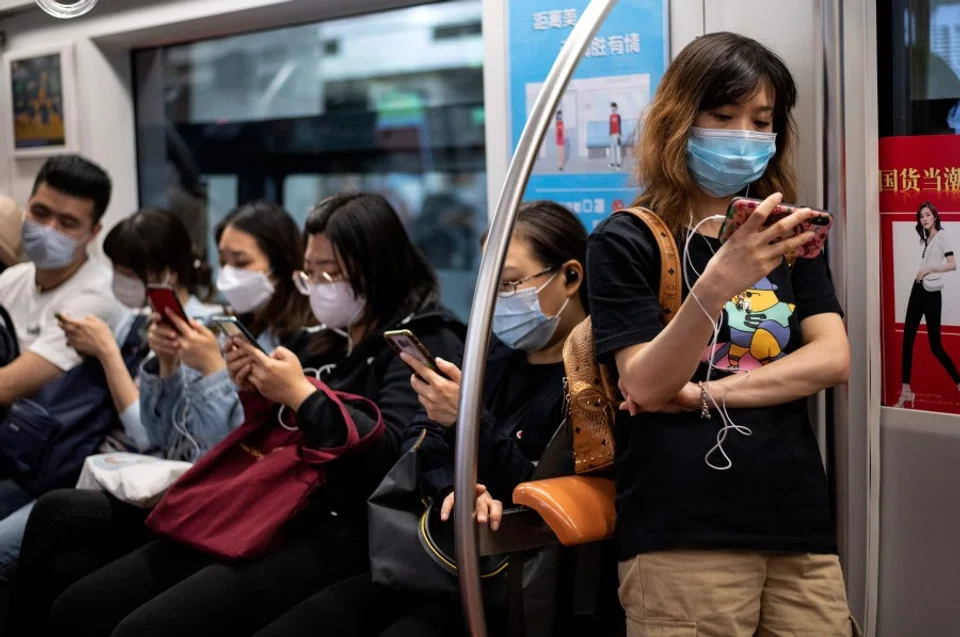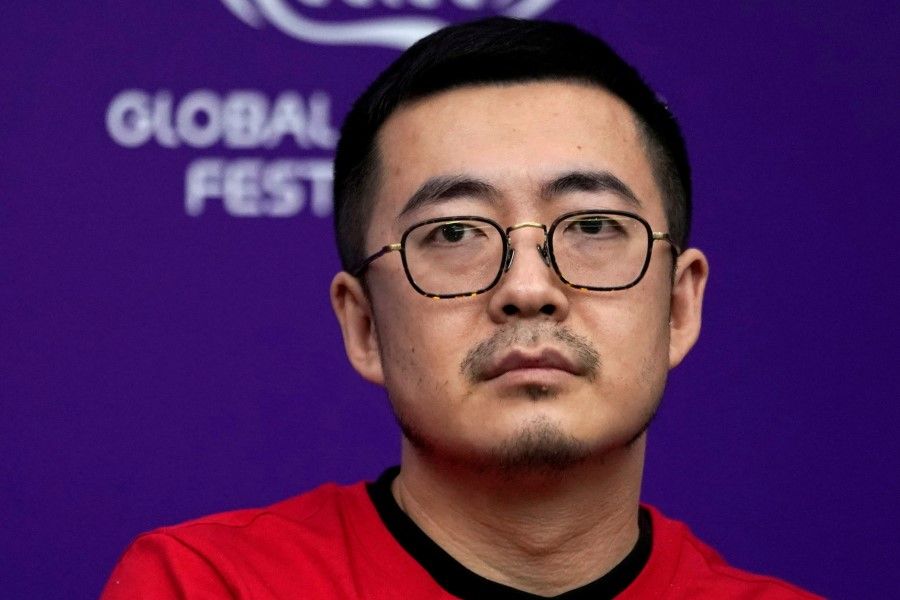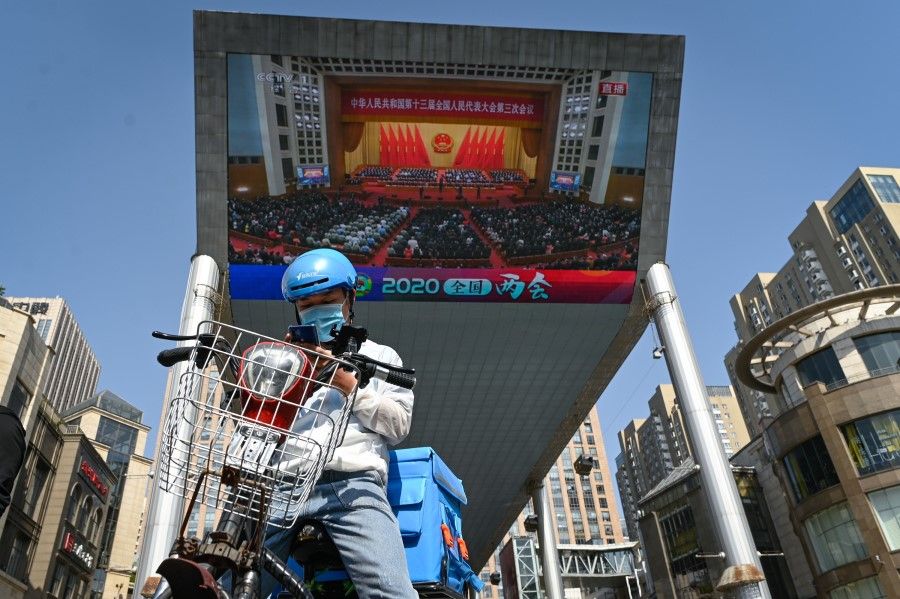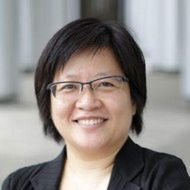Weibo punished: Should public opinion be controlled by money or the state?

The love life and extramarital affairs of the rich and famous are always of particular interest.
In April, 35-year-old Alibaba group scion and "crown prince" Jiang Fan - president of Alibaba's e-commerce platforms Taobao and Tmall - was exposed for having an affair with Taobao's top influencer Zhang Dayi. And the one who exposed him was none other than his wife, who fired off a Weibo post to warn Zhang not to "mess with" her husband, sending shockwaves through the internet.
All at once, lurid stories of "wife rips apart mistress" and "tycoon's wife takes on factory girl" went viral, dragging down Alibaba's share price by nearly 2% at one point, while its market value dropped by over HK$40 billion (S$7.2 billion), and the shares of the US-listed company associated with Zhang Dayi plunged by 10% overnight.
...comments were turned off on Mrs Jiang's Weibo account, and the juicy gossip she spilled did not make it to the list of top searches and hot topics...
Jiang was removed as a partner at Alibaba, given a demerit, demoted, and had to forfeit financial incentives, because his "mishandling of family issues" had "triggered a serious crisis of public opinion and had a major impact on the company's reputation". However, Alibaba also stressed that Jiang's activities with Zhang do not involve any monetary transactions.
Meanwhile, following her opening salvo, comments were turned off on Mrs Jiang's Weibo account, and the juicy gossip she spilled did not make it to the list of top searches and hot topics, prompting netizens to criticise Weibo and Alibaba for covering up for each other with capitalist power. Alibaba is Weibo's second-largest shareholder, with a 30% stake.

Just as things looked to have blown over, a "Mr Jiang" once again became a trending topic. Two days ago, China's internet regulator the Cyberspace Administration of China (CAC) announced that it had reprimanded Weibo for "disrupting online communication" and "disseminating information that is against rules and regulations", in a case involving a person with the surname Jiang. Weibo was ordered to stop updating its list of top searches and hot topics for one week, and will also face a fine.
... the CAC is stepping in to punish Weibo... to give the capitalist powers that are calling all the shots in China's internet world a stern warning - they cannot simply use money to control what people say.
From gossip fodder to the reason for Weibo's one-week suspension - anyone can tell that "Mr Jiang" is Jiang Fan. Apparently, the upcoming 18 June e-commerce retail festival next Thursday was to be Jiang's chance to redeem himself: if his Tmall could soundly beat out fierce rival Pinduoduo, it would put his position in Alibaba on firmer ground. It is indeed unfortunate that his previous gossip is resurfacing now.
As for why the CAC is stepping in to punish Weibo, of course it is not to interfere in a family dispute, but to give the capitalist powers that are calling all the shots in China's internet world a stern warning - they cannot simply use money to control what people say.
For a long time, internet companies have generated profits through search functions and creating impressions of top searches and what's hot. It is no secret that in China, a lot of search results that seem to be social media user picks - top rankings, statistics, hype, and buzz - can all be bought.
Not only can money get one onto the list of top searches and delete negative news off the list, new search terms, fans, likes, reads, and engagement rates all have their price tags.
In the first half of 2018, the CAC also ordered Weibo to clean up its top searches and hot topics, while China's mainstream media also took the opportunity to criticise the grey areas behind Weibo's top searches. Not only can money get one onto the list of top searches and delete negative news off the list, new search terms, fans, likes, reads, and engagement rates all have their price tags.
Beijing Youth Daily estimated then that it cost millions of RMB to keep a term on the list of top searches for 24 hours. Of course, this is not a game for the common folk. But for tycoons or companies with money, or retail or management companies that need to create buzz or build up celebrities, it is just part of business.
However, even as the authorities clean up, public discussion continues to be manipulated by money. As long as one can afford it, one can control whether information spreads or disappears. A new star can be created on a talent show or an idol-type programme, and it can be made to (falsely) look like the netizens' own pick. So-called "traffic stars" (流量明星) refers to young artists who are attractive with many fans, and who dominate Weibo top searches and entertainment headlines as hot topics, but who do not have any representative work worth remembering.
... public opinion is also a "heavy machinery of the state", and public opinion cannot be manipulated by money. In other words, money cannot be allowed to weaken the power of the state.

A popular online phrase is "traffic is king"; that rings hollow, because traffic can be artificially created. So, money is the bigger king, because it can create false hype and profit from it.
After two years, the authorities are again knocking Weibo and saying its problem is "disrupting online communication", emphasising that online platforms "cannot interfere with the normal presentation of information". Many people interpret this as: public opinion is also a "heavy machinery of the state", and public opinion cannot be manipulated by money. In other words, money cannot be allowed to weaken the power of the state. Others speculate whether this might be the beginning of a movement against a monopoly of the internet.
Social media is not only creating "traffic stars" to earn money, but it is also profiting from nationalism.
From the perspective of safeguarding freedom, whether public opinion is controlled by money or power, it is not a happy outcome. But when public opinion is changed by money, then regulation by the authorities is necessary. After all, the basis of money is profit and not ethics; having public opinion controlled by money is a frightening prospect.
At the same time, something else has been happening in recent years that needs to be watched. Social media is not only creating "traffic stars" to earn money, but it is also profiting from nationalism. In order to generate traffic, some media and platforms exaggerate or highlight foreign oppression of China, and create a climate of confrontation between China and the rest of the world. Or, they promote negative news about other countries and play up fake nationalistic news such as "many countries yearn to return to China". Some of this airing of public opinion has led the West to misjudge China and doubt its resolve to move on a path of peace.
Who is leading and producing such public opinion? Who does it benefit? Does it come from the media, or the ones with money, or the state? Should we not also look into, investigate and manage these issues?
